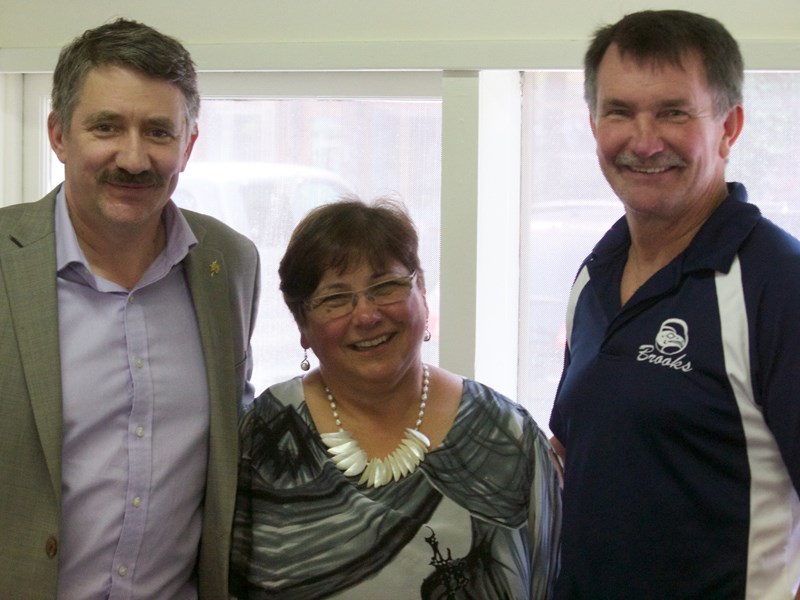BC Teachers’ Federation (BCTF) will want a “substantial” salary increase when new contract bargaining begins in 2019 with the provincial government.
That was the message delivered to Powell River-Sunshine Coast MLA Nicholas Simons by Powell River District Teachers' Association president Ken Holley and educator Anita Adams at a meeting on May 2.
“Our wages are the second lowest in Canada in a province with one of the highest costs of living,” said Adams, a teacher at Westview Elementary School.
According to current BCTF research of existing collective bargaining agreements across Canada, a BC teacher with category five qualifications ranks 12th out of the 13 provinces and territories, and ninth out of 10 provinces.
BCTF findings show the average starting wage for a category five teacher in BC is $49,377.
Adams said a comparable wage the BCTF could be seeking is with Alberta teachers, at $62,757.
Teachers want to relocate to Powell River from the Lower Mainland because they cannot afford to live there, according to Holley. He said School District 47 has a shortage in special education, French immersion and music teachers, but teachers are not going to move here unless wages are competitive.
Holley and Adams asked 10 questions of Simons during what the MLA called an informative meeting to give him an idea about what issues teachers will put on the table so he can take them back to Victoria.
“I know where our government comes from and the value it puts on public education as a principle,” said Simons, who will not have a chair at the bargaining table, “so I'm presuming we'll have people who are not going to be dismissive of your claims. They'll have a sympathy to the sector that maybe hasn't been reflected in previous governments.”
For the first time in many years the tone is positive between teachers and the provincial government, according to Adams, and both she and Holley said a good relationship also exists between the Powell River teachers’ association and SD47.
“We've been able to work closely with the district to get the remedies and supports in place and moving forward next year,” said Holley. “We're already developing plans for next year. We're well ahead of the curve so our questions are more focused around things we don't have control over here.”
Those questions include purchasing resources for the revised curriculum, which, according to Holley, has not been implemented at the grade 10 to 12 level. There is a lack of textbooks for the curriculum and many teachers are currently creating their own learning materials because the textbooks are not available.
Simons was asked if he would fight for fully funding special needs students; restoring funding to hire children and youth care workers to address more children and youth experiencing anxiety and other social difficulties; funding for international students in English language learning; standard reporting procedures; travel grants for other student activities than just those available for sport teams; and a reduction of ferry fares for rural communities.
Holley said the meeting with Simons represents the start of the negotiating process.
“That's part of the plan,” he said, “and the BCTF has requested the government start bargaining early to get a head start and hopefully avoid all of the problems we had over the last four rounds where we start bargaining the day our contract is up.”



